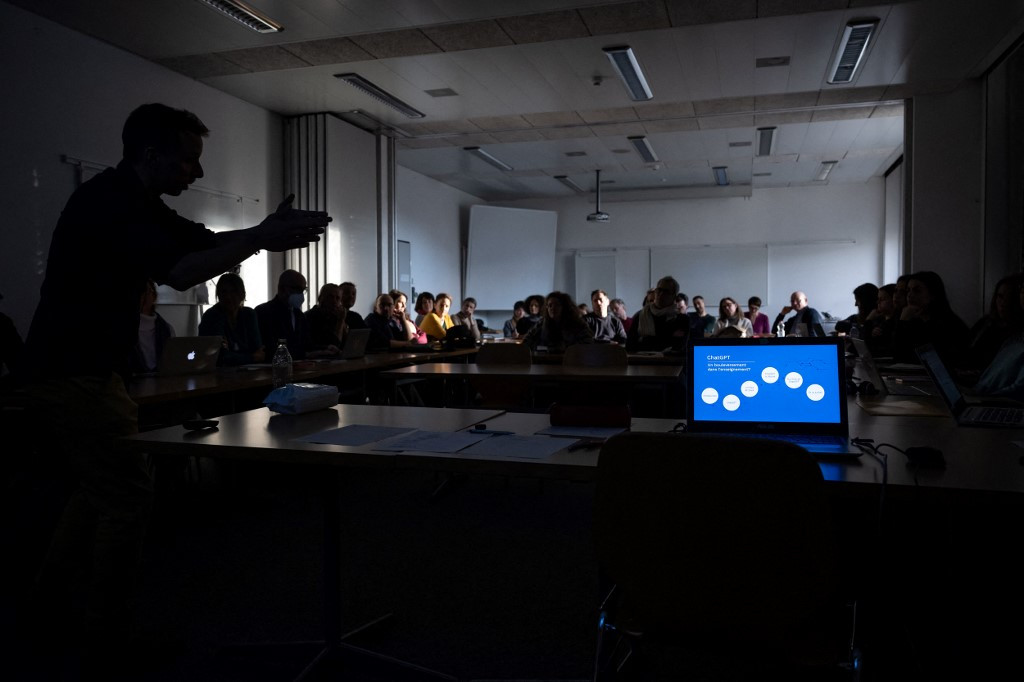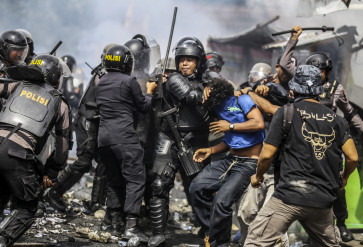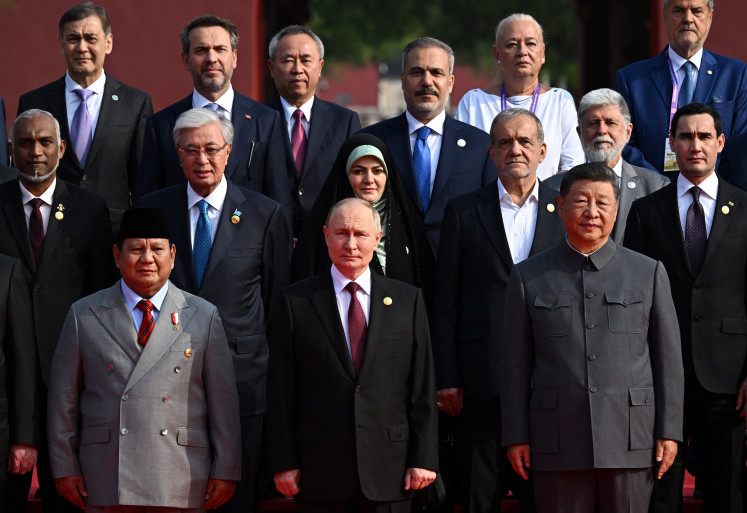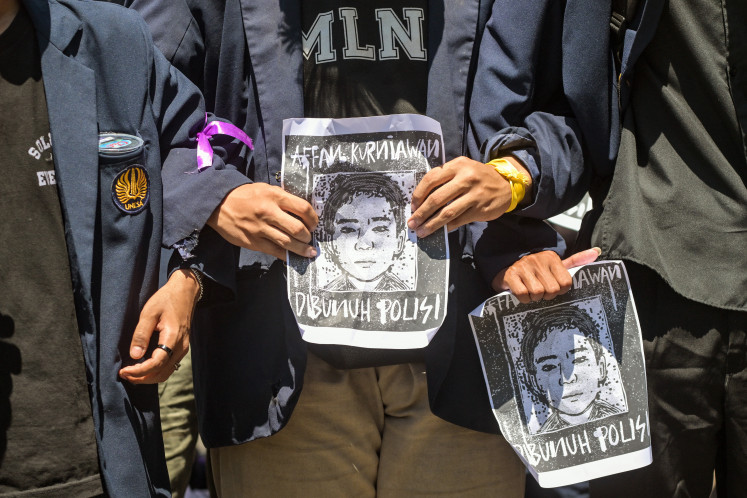Popular Reads
Top Results
Can't find what you're looking for?
View all search resultsPopular Reads
Top Results
Can't find what you're looking for?
View all search resultsGetting creative with using ChatGPT for education
With ChatGPT, students can get individualized attention, allowing them to learn at their own speed and comprehension level.
Change text size
Gift Premium Articles
to Anyone
ChatGPT has the potential to revolutionize both the workplace and the classroom. Debates over students using artificial intelligence (AI) technologies to do their assignments are not surprising given the large potential use of chatbots in higher education.
The debates primarily concern the possibility that students may try to pass off the results produced by chatbots like ChatGPT as their own original works. Universities across the world are battling this real issue. Some big universities like Oxford, Cambridge and Manchester have decided to forbid students from using chatbots like ChatGPT for academic purposes.
The policy stances tilt toward conservatism, but when more is learned about the skills, capacities and constraints of ChatGPT, they could be significantly amended, if not entirely reversed. For instance, universities like Heriot-Watt, Glasgow University and University College London are adopting a different strategy. These colleges are creating policies that permit the use of ChatGPT by students under certain conditions.
While ChatGPT may offer a wide range of new opportunities for the use of AI, administrative challenges may put OpenAI's next-generation chatbot in Indonesia in jeopardy. Under Regulation No. 17/2019 on Electronic System and Transaction Operation, the Communications and Information Ministry would have control of ChatGPT for taxation and content regulation.
In this case, OpenAI might be requested to register ChatGPT as an Electronic System Provider (PSE) if it receives income from Indonesian consumers. Although the core ChatGPT functionality is free, OpenAI also provides the ChatGPT Plus option for US$20 per month, which grants customers priority access to new features and faster response times, which is accessible in Indonesia.
On the other hand, there are various opportunities for effective application of ChatGPT in Indonesian higher education institutions. For instance, the use of chatbots as private tutors in the classroom is an apparent prospective use. Due to rising student-staff ratios, it is harder to provide each student with the individualized attention they want.
In some universities, class sizes have reached the hundreds, making it difficult to remember student names, let alone their learning preferences and academic difficulties. With ChatGPT, students can get individualized attention, allowing them to learn at their own speed and comprehension level.
Another possible use of ChatGPT is in the field of student support services, which are normally neglected or non-existent at most colleges. The laws and regulations that govern universities frequently overlap and are layered, making it difficult to provide a clear answer to a particular circumstance. Chatbots might answer queries from students straightforwardly and succinctly, reducing waiting times and streamlining the procedure for them.
There are many other possibilities for chatbots including counseling and career supervision. Chatbots can help students in these critical areas by offering quick and private support. Given the frequency of mental-health problems among students, providing an easily available counseling service can go a long way toward assuring the well-being of students. Relatedly, chatbots may be able to offer tailored career advice based on students' interests and academic records, as well as individualized information about job alternatives.
The most important point is not to replace the educators, but to improve service quality by providing another touch point and a higher level of care. Therefore, universities must investigate and take advantage of the numerous AI applications that could be used in higher education. Every university, including students, faculty, staff and administrations, should consider the opportunities that ChatGPT presents and how to best leverage them to enhance the provision of education, related services and higher education institution operations and to increase faculty and staff productivity.
Therefore, while the debates around the use of ChatGPT in higher education tend to focus on its potential misuse, there are significant opportunities to explore the positive impacts in academia. In particular, the potential benefits that can be considered are to improve the quality of education and services to students. For that reason, universities in Indonesia need to exhibit some intellectual curiosity in exploring the potential applications of ChatGPT to achieve a more creative learning environment.
It is hard to answer this kind of question. In the current scenario, ChatGPT is making higher education institutions rethink the concept of plagiarism. But do not be misled. Concerns about inappropriate internet use in academia have not arisen since the creation of ChatGPT.
If we take the case of Wikipedia when it was first launched in 2001, educational institutions around the world also faced serious concerns about research philosophy and academic honesty. Yet, educators know best the quality of students’ work by catching up with technology innovation and adjusting the rules of using materials from the internet. Hence, a student who takes texts from ChatGPT will be considered no different than one that copies and pastes parts of text from Wikipedia without acknowledging any attribution.
For some people, ChatGPT is just another utility, similar to a calculator or spellchecker. It might be ridiculous to say using ChatGPT to access trustworthy online sources is cheating. I think it would be equivalent to saying conducting research online is unethical. In this case, ChatGPT is like Grammarly or Encyclopedia that can be used for practical reasons.
Because ChatGPT is a relatively new phenomenon, it is understandable students are uncertain about its ethical implications. What regulations will stand after the dust settles at any school is also unknown. Universities are compelled to reevaluate their conceptions of academic integrity to properly represent the circumstances of society amid the significant change in both the academic and technical domains.
The debate over whether ChatGPT is a research tool or a plagiarism engine is getting more complicated. However, it is also possible it can be used in educational settings. For instance, teachers can demonstrate to students the drawbacks of AI by giving students assignments that require personal information that chatbots could not accomplish.
By doing so, teachers have already changed the way they educate creatively. Additionally, spotting AI usage in students' assignments is a developing cottage industry unto itself.
In conclusion, there should be general policies that effectively state that utilizing AI technologies without a lecturer’s consent would be regarded as a breach of the academic integrity code. As long as education leaders openly state they are permitting it, that then provides educators considerable discretion to use it in their instructions or assignments.
***
The writer is an education consultant in Kedah, Malaysia, and a member of the Presidium of Indonesia Social Justice Network 2021-2023.










